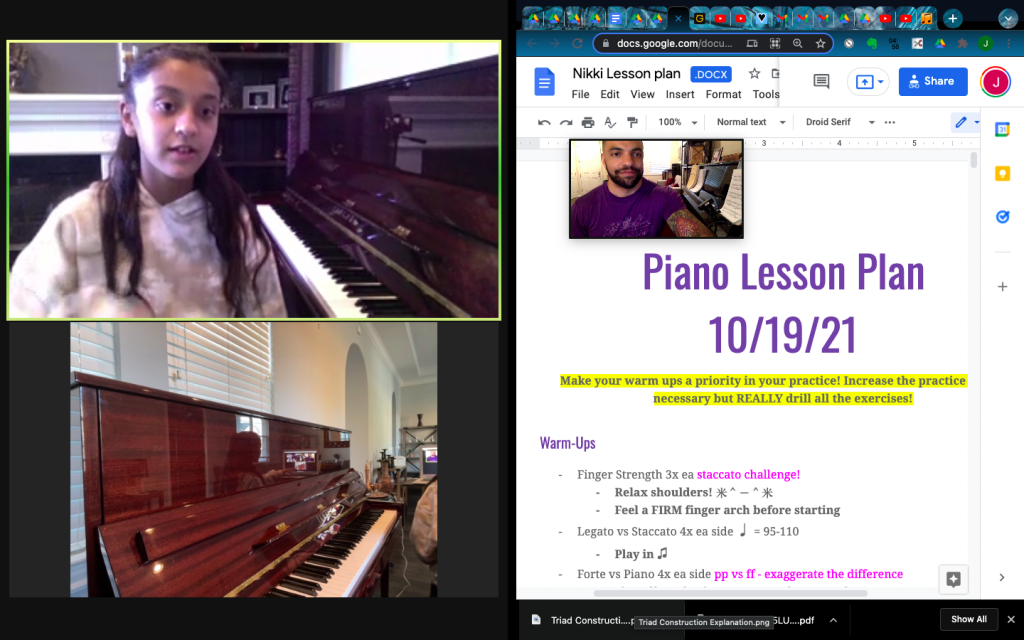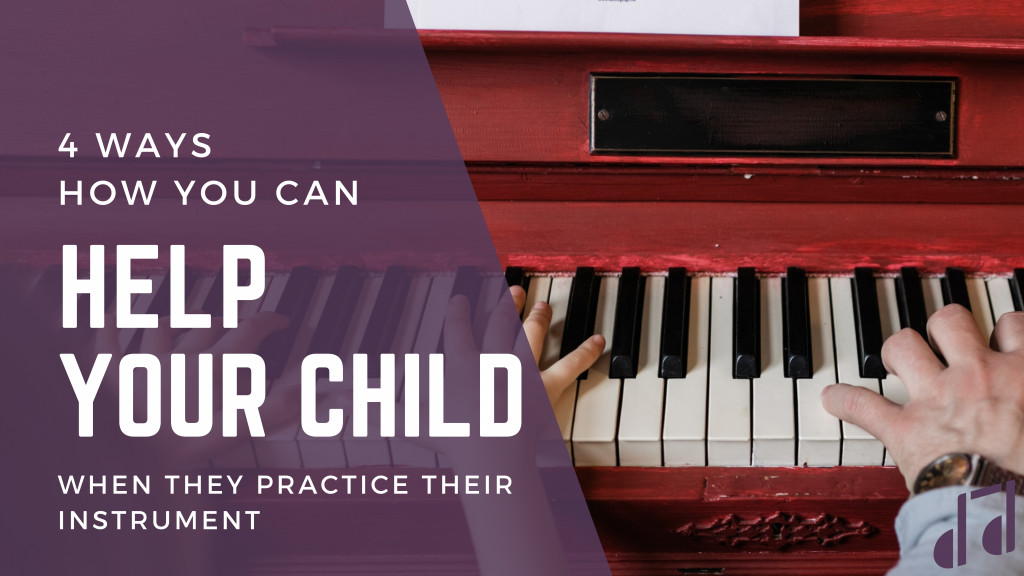Tips and Tricks for Parents
Should I help my child when they practice their instrument?
Developing a sense of practice and a healthy critical attitude towards it is the foundation of any learning, even music subjects. Although professors explain the plan and approach to exercise in detail, sometimes a little bit of a parent’s help while he is doing his homework at home is necessary in order to develop the right attitude and independency towards learning with certainty.
Whether you have previous music education or not, there are some ways that can be very helpful to them. Therefore, we will dedicate this article to several methods with which every parent can easily enter the world of music and help his child in developing a proper approach to practicing a musical instrument.

1. Practice makes perfect
How many times have you realized that your child has mastered most of the material, but there are always some strange sounds, delays, and mistakes? Don’t be afraid because it is a completely normal part of practicing! Let us describe to you why.
Learning how to play an instrument isn’t similar to subjects such as history where you mostly remember the information or math where you can use one formula to solve a problem. Playing an instrument is more like a physical skill that requires daily dedicated practice. The more they repeat the song, practice small parts in different methods, and analyze them theoretically, the more likely they will become better at playing it. So, to conclude, instant achievement in music education is rarely present!
Therefore, if you notice that your child makes some mistakes, you can encourage them and gently ask them if that sounded ok, did they made a mistake and how should they make it better. Understanding where the mistake is made and how to address each problem without any frustration is a golden key to success in learning any subject. Guide them to the answer and give them time to overcome any challenges. You will see through days – each time it will sound better and better!
But, there is a little catch that every parent should be aware of. If you find that the child ignores mistakes and delays in playing because they are convinced that they have mastered the composition, it is necessary to advise him and lead him to better results. Despite his assessment that “they know that” and that a coincidence happened, ask him if it was good and what could be played better. This will motivate him towards greater results, give them the awareness of current achievements and guide them to further steps that would make the song sound better.
2. Listen to the song online
Almost all songs from piano books can be found on Youtube. They are mostly of short duration with easily memorable melodies. After listening to them, you can assess whether your child played identical notes and where they sounded different. Of course, not knowing the musical notation is difficult, but if you find that they are making a mistake, try to sing how should it sound or describe the part where you think they made a mistake.
There is a big warning for all parents in this way of correcting mistakes – some songs are played at a fast pace on the Internet. If the child has started practicing a new song, it is important not to adjust the speed of playing, because some children, especially younger ones, are not ready for those types of music challenges. So, this method is primarily for you to listen to the melody and rhythm in order to assess whether your child has mastered the song correctly.
3. Let your child be your music teacher
This method is one of the most fun and effective, with which wil you not only acquire new knowledge that can be helpful during his practice, but your child will also repeat and determine the previous material from his last lesson. You can ask him whatever comes to your eye or mind – what is this line that connects so many notes, what does the P between the music staff stands for, what are those numbers, what is andante, what are those dots below the notes, why is this song called …, is this a happy or a sad song, and so on! And our advice – don’t be shy with not asking too many questions!
4. Follow the written instructions from the class
After each class, the student at San Ramon Academy of Music receives a written report in which the teacher detaily explain their homework and all exercise instructions. Besides that you will have a clear insight of the child’s progress, you will be also sure on how to advise them properly when they practice at home without the supervision of a teacher.

It isn’t as hard as it seems!
As we said at the beginning of the article, good guidance at the beginning can develop great habits in every child. And even though it can seem like an obligation that can take your time, we can surely tell you that with the proper, encouraging approach, your child will fastly develop independency and a great sense of responsibility, as well as a correct way of practicing.
If you have additional questions, don’t hesitate to contact us on the widgets below! We will be happy to further explain everything you need to know about music education!
Book your FREE trial lesson with us by clicking the links below!
Individual Lessons: Piano, Guitar, Violin, Singing, Trumpet, Composing!

